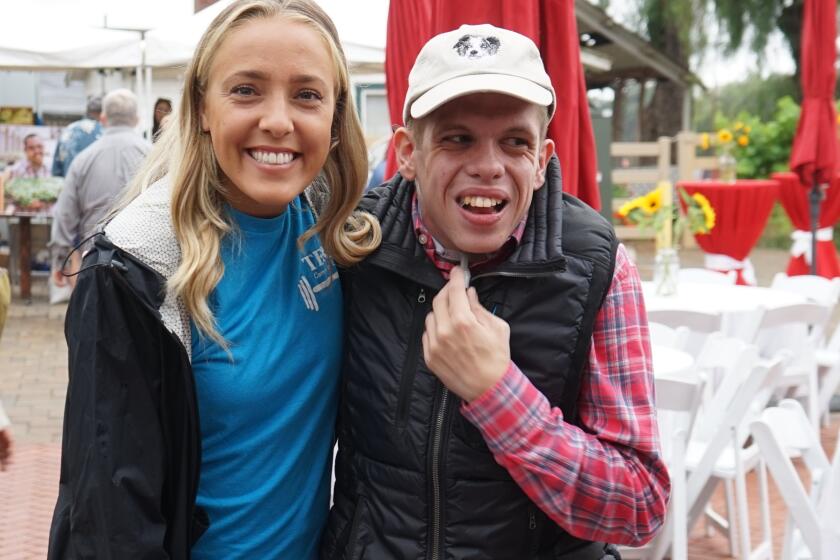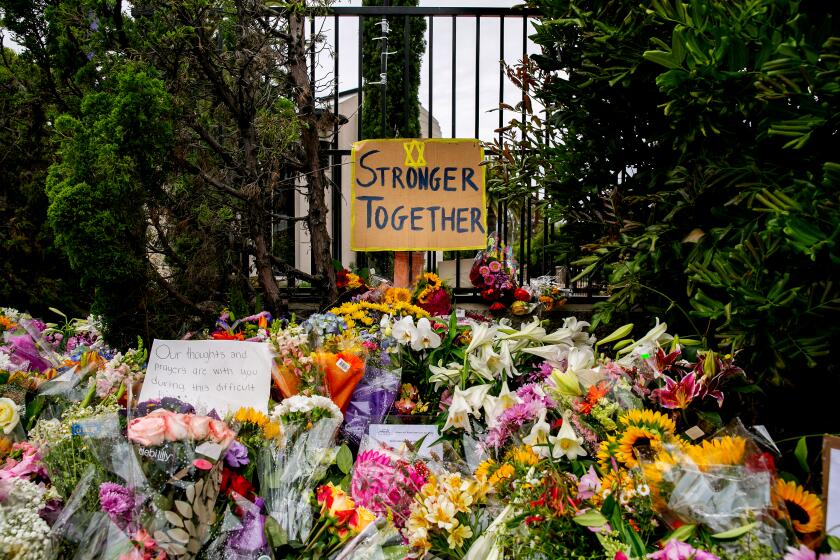Q&A: Superior Court judge candidate Tim Nader
The San Diego Union-Tribune Editorial Board submitted questions to candidates for San Diego County Superior Court. Tim Nader is seeking to fill Office 30, with is open due to a judge’s upcoming retirement. Here are his responses to the U-T Editorial Board’s questions.
Please explain your legal background and why you are qualified to be a judge.
Criminal prosecutor for seven years.
Child support attorney for six years.
Civil litigator for 11 years.
Total of 18 years as a California deputy attorney general.
Judges have an impact on the lives of our citizens every day. I understand judges need to provide fair and equal justice in court and be mindful of the impact of their decisions on our safety, our environment and our economy. Most important, judges must uphold the Constitution and stay within their limited role if the public is to be confident in the fairness of our justice system.
In addition to having an unusually broad legal background, I served as a city councilman and mayor of Chula Vista and as a community college trustee. The combination of strong legal background and community leadership make me uniquely qualified to serve as a judge. I have a strong understanding of public safety, environmental and economic development issues. I understand fully the relationship between branches of government, the appropriately limited role of a judge, and the impact on law-abiding citizens of the decisions a judge makes every day.
Why are you seeking this position?
I understand our Constitution protects the civil and property rights of our people, and judges must always uphold it. My career as a lawyer and a public official demonstrates my commitment to public safety, fairness and our constitutional rights.
Judges have a huge impact on the lives of people in every case they handle. If someone is accused of a crime or the victim of a crime, if someone has a business or property dispute, if a custody of a child is at stake, it is critical that we have qualified, experienced judges with compassion and understanding not just for the people in the courtroom but also for the citizens who will be affected by their decisions.
I have experience as a criminal prosecutor and also in civil litigation and family law. As a public official, I’ve gained insights into how what takes place in the courtroom can affect the safety of a child coming home from school, the opportunity a child will have after graduating from school, the safety of our streets and parks and neighborhoods, and the environment we will pass on to the next generation.
What one criminal justice reform is most needed or are you content with the criminal justice system as it is?
The paramount purpose of the criminal justice system is to protect the rights and safety of law-abiding citizens. Reducing sentences without regard to the impact on public safety is not the answer.
The most important change is to extend opportunity without becoming lenient. As a community college trustee, I’ve been a leader in supporting programs that extend educational opportunity to incarcerated people, without shortening their sentences. These programs offer classes that provide job skills and college credit. Prison education programs have been shown to reduce recidivism by as much as 40%, making all of us safer. Since a large amount of crime is caused by drugs, effective drug rehabilitation programs should also be offered.
Some criminals (such as pedophiles) are not amenable to rehabilitation and must be locked up; others (first-time nonviolent offenders) may not belong in prison. Combining tough law enforcement with programs to provide better options for young people who may be falling through the cracks worked well in Chula Vista, where we saw a significant drop in crime in the mid-1990s.
The state Supreme Court is weighing an amendment to the judicial Code of Ethics that would allow a judge to publicly oppose a judicial candidate. The code now only allows judges to endorse for a judicial office. Do you support or oppose such a change?
I’m inclined to support this change as it would seem to be more consistent with the First Amendment of the U.S. Constitution. Public confidence in our institutions is not as high as it should be for a healthy democracy. Judges who are biased or who substitute their personal preferences for the Constitution undermine that confidence, and can cause serious harm to people in their courts who depend on them for fairness and justice. Expressing opposition to judicial candidates who demonstrate a likelihood of behaving in such a manner would be an appropriate way for judges to protect the integrity of our courts. As one Supreme Court justice said, “Our courts should not be gaming halls, but forums for the discovery of truth.”
Of course, judges should be judicious in expressing their opinions. Just because we have a right to do something doesn’t always make it a good idea. Judges should be careful to avoid the incivility that has increasingly characterized too much of national politics. Opposition to a judicial candidate should be based on qualifications, temperament or demonstrated bias, not on personal innuendo or political considerations.
Meet the other candidates for San Diego County Superior Court judge for Office 30 below.
The San Diego Union-Tribune Editorial Board submitted questions to candidates for San Diego County Superior Court. Michael Murphy is seeking to fill Office 30, with is open due to a judge’s upcoming retirement. Here are his responses to the U-T Editorial Board’s questions
The San Diego Union-Tribune Editorial Board submitted questions to candidates for San Diego County Superior Court. Peter Murray is seeking to fill Office 30, with is open due to a judge’s upcoming retirement. Here are his responses to the U-T Editorial Board’s questions.
The San Diego Union-Tribune Editorial Board submitted questions to candidates for San Diego County Superior Court. Paul Starita is seeking to fill Office 30, with is open due to a judge’s upcoming retirement. Here are his responses to the U-T Editorial Board’s questions
Get Weekend Opinion on Sundays and Reader Opinion on Mondays
Editorials, commentary and more delivered Sunday morning, and Reader Reaction on Mondays.
You may occasionally receive promotional content from the San Diego Union-Tribune.





